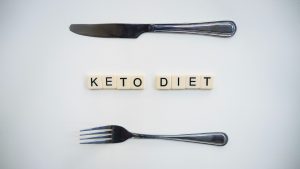How Can I Know I’m In Ketosis?
 One of the most popular diets today is the keto diet. It forces the body to switch from using glucose to burning fat. That causes the increase in ketones in your blood. They’re the energy source for the brain when limited glucose is available and created by the liver. Ketosis indicates the diet is working, so you need to know when you’ve achieved it. Here are some signs to help you.
One of the most popular diets today is the keto diet. It forces the body to switch from using glucose to burning fat. That causes the increase in ketones in your blood. They’re the energy source for the brain when limited glucose is available and created by the liver. Ketosis indicates the diet is working, so you need to know when you’ve achieved it. Here are some signs to help you.
Test your blood for more ketones.
Probably the most reliable way is to test the blood for ketones. That requires you to prick your finger and a special kit that can be expensive. Since excess ketones leave the body as acetone in the urine and breath a breath analyzer, is a second choice. The most often used and cheapest way is to test the urine. The urine strips aren’t as accurate, but they are less expensive and give you a good idea of how much progress you’re making.
Your breath smells odd and not in a good way.
The breath analyzer indicates ketones, which are acetones, are being expelled. A good friend or family member can do the same thing. The release of acetones makes your breath smell like a combination of nail polish remover and rot. It’s a side effect of ketosis. No matter how much you brush your teeth or gargle, the smell lingers. Don’t quit brushing more often or attempting to eliminate it by chewing sugar-free gum or gargling. Those still help a bit.
Losing weight is one of the most positive ways to know you’re in ketosis.
You went on the keto diet and noticed that you shed far more weight than expected in the first few weeks. Rejoice! The diet is working and your body is in ketosis. You won’t have such fast weight loss after that, since the loss is mostly water weight but your weight will consistently drop. It will just be slower. The upside is that it will be true fat loss.
- After you start the keto diet, you may notice you’re not as hungry as you might normally be. Some believe it’s due to the increase of protein and change that causes diminished hunger hormones.
- You might feel exhausted initially. Fatigue can affect physical and mental performance. It’s all about switching from using carbs to burning fat for energy. Once your body adjusts, your energy level returns.
- The keto-flu includes both brain fog and digestive issues. The feeling of being sick is common when first starting a low-carb diet. It takes a few days for the brain to adjust to burning ketones. Since you’re eating less fiber, digestive issues like diarrhea or constipation occur.
- The good news is once your body adjusts, you’ll be more focused and have improved brain functioning. You’ll have more stable sugar levels. If you initially had insomnia, it disappears after a few weeks.
For more information, contact us today at Reggie C. Fitness


